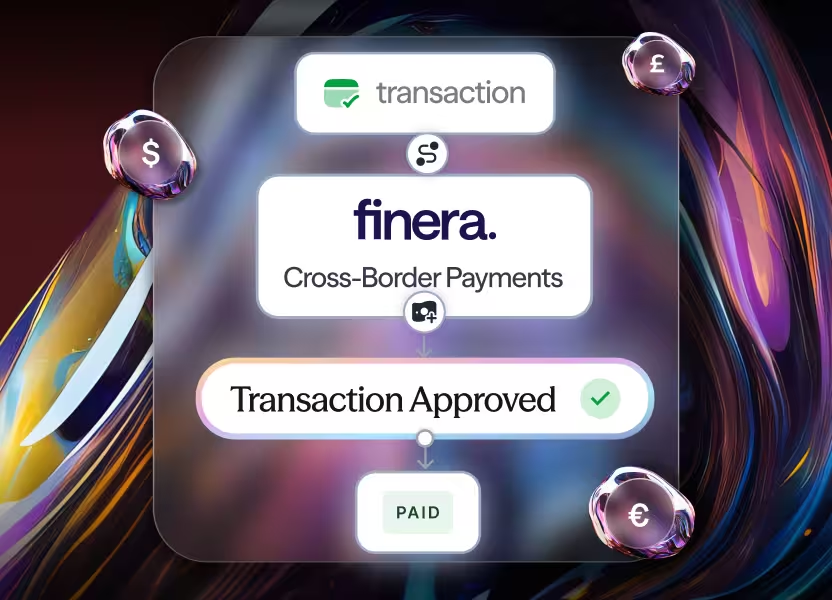The Ultimate Guide to Modern E-commerce and Retail Payment Solutions
Discover how modern PSPs and orchestration platforms are transforming global e-commerce and retail.

Modern business success hinges on a reliable payment infrastructure. Customers now expect a seamless, secure and flexible transaction experience, regardless of where or how they shop. For any business, from a burgeoning startup to a multinational corporation, navigating this complex landscape requires more than just a simple online payment gateway. It demands a strategic approach to e-commerce payment solutions and retail payment processing that unifies every touchpoint and optimises every transaction.
At the heart of this strategy is the choice of a trusted Payment Service Provider (PSP). A modern PSP is no longer just a transaction conduit but a strategic partner that equips businesses with the tools needed to scale globally, protect against fraud and provide an exceptional customer experience. This guide will take a deep look into the technologies, methods and strategic considerations that define the future of merchant payments, ensuring your business is not just participating in the market but leading it.
The Foundation of Success: Building a Unified Payment Infrastructure
The first step toward payment mastery is establishing a unified platform. A powerful online payment gateway serves as the core but it must be flexible enough to handle the full spectrum of commerce. If your business operates purely online, has a physical presence or both, a single solution can streamline your operations and provide a holistic view of your revenue.
This unified approach is essential for businesses looking to expand their reach beyond local borders. A strong global payment service provider offers cross-border payment solutions and multi-currency payment processing as standard features. This capability allows merchants to present prices in a customer's local currency, a small but critical detail that can significantly boost conversion rates. Localised pricing and payment options simplify international market entry and transaction management, eliminating the need for multiple regional financial partners.
The modern payment platform also supports an array of payment methods beyond traditional cards, giving customers the freedom to pay how they prefer. This is where the power of a single platform truly shines, by providing a consistent and secure experience for every transaction, from the first click to the final real-time payments transfer.
Mastering the Payment Mix: Cards and Alternative Methods
Today, a successful payment strategy integrates various methods, each designed to align with distinct customer preferences and regional trends.
Credit & Debit Card Processing
Despite the rise of new technologies, card payments remain the backbone of global commerce. A state-of-the-art platform must offer seamless credit card payment processing for all major networks, including Visa and Mastercard merchant services. For retail stores, this means supporting contactless card payments and EMV payment solutions, ensuring fast and secure transactions at the point of sale. For online merchants, the focus shifts to securely handling card-not-present transactions.
Security is paramount here. A PCI-compliant payment gateway is a non-negotiable requirement, protecting both the merchant and the customer. This is achieved through advanced security measures, most notably tokenisation for credit card payments. Tokenisation replaces sensitive card data with a secure, non-sensitive token, which is used for all subsequent transactions. This dramatically reduces a merchant's PCI scope and protects data from a breach. For subscription-based businesses, a platform that facilitates recurring payments, credit cards and manages these tokens is essential for customer retention and seamless billing.
Even in specialised scenarios, such as high-risk credit card processing, a capable PSP can provide tailored solutions to manage the unique challenges of these verticals.
Alternative Payment Methods (APM)
To truly stand out, businesses must embrace alternative payment methods for e-commerce. These methods, often referred to as APMs, are critical for increasing conversion rates and catering to diverse customer demographics.
- Digital Wallets: Offering digital wallets payment solutions like Apple Pay integration for retail and Google Pay for merchants provides a fast, one-click checkout experience that customers expect.
- Buy Now Pay Later (BNPL) Providers: The popularity of BNPL services has soared, particularly for high-value purchases. Integrating with Buy Now Pay Later (BNPL) providers can reduce cart abandonment and increase average order value.
- Local and Regional Payments: As you expand, offering region-specific methods is a must. A global payment service provider should offer popular local payment methods in Europe, such as SEPA, as well as crucial local payment methods in Asia, to meet regional consumer preferences.
- Emerging Payments: Forward-thinking businesses are also exploring options like cryptocurrency payments for merchants and leveraging the power of mobile payments for e-commerce to attract tech-savvy customers.
How PSPs Protect Online Transactions: Fraud, Security and Compliance
Given the sophistication of cyber threats, a strong payment strategy requires a solid security framework. A PSP acts as a vital shield, protecting businesses and customer trust.
A state-of-the-art platform will incorporate an extensive suite of tools for fraud detection in e-commerce payments. This is often powered by AI in payment processing, which can analyse billions of data points in real-time to identify and flag suspicious transactions before they can cause harm. This proactive approach, combined with dedicated payment fraud prevention software, is critical for minimising financial losses and protecting your brand reputation.
For online transactions, 3D Secure payment authentication provides an extra layer of security by requiring customers to verify their identity. A modern platform intelligently deploys 3D Secure only when needed, reducing friction for legitimate customers while providing maximum protection against fraud.
Beyond transaction-level security, a responsible PSP will also provide a full suite of compliance and risk management tools. This includes implementing KYC and AML for payments to verify customer identities and prevent money laundering, as well as providing transaction monitoring solutions to flag suspicious behaviour. A proactive approach to risk management in payment processing ensures that your company stays in compliance with changing international regulations while also protecting your bottom line. The ultimate goal is to provide a truly secure online checkout that customers can trust, backed by powerful chargeback prevention solutions that safeguard merchant revenue.
Why Enterprise Merchants Need Payment Orchestration Platforms
For enterprise-level merchants and those with complex operations, a standard gateway is insufficient. They need a payment orchestration platform. This advanced software allows a business to integrate with multiple payment processors and methods through a single interface. This provides a level of control and flexibility that is impossible with a single-provider setup.
A payment orchestration platform allows for intelligent routing, a feature that automatically directs each transaction to the most optimal processor based on factors like cost, geography and historical success rates. This ensures the highest possible approval rates, minimises downtime and gives the merchant complete control over their merchant payment solutions.
For businesses with a global footprint, this orchestration is particularly valuable. It streamlines cross-border e-commerce payments by intelligently routing transactions to local acquirers, which can reduce fees and increase success rates. Paired with FX and currency conversion payments, this creates a truly localised checkout solution that feels native to the customer, whether they are in Europe, Asia or Latin America. The platform should also facilitate regional standards like SEPA payments for merchants, further simplifying European operations.
Payment Technology & Use Cases for Every Vertical
The right payment solution is not a one-size-fits-all product. It is a highly adaptable tool designed to meet the unique needs of different industries.
- E-commerce payment gateway for small businesses: Solutions for small merchants must be easy to set up and scale as the business grows.
- Payment solutions for retail stores: This requires integrated POS systems and omnichannel functionality.
- Online payment processing for marketplaces: Marketplaces need solutions that can securely handle multi-vendor payments, split payouts and complex fee structures.
- Gaming payment solutions: This vertical requires reliable fraud prevention and high-speed processing to handle real-time transactions.
- Travel industry payment processing: This sector needs solutions that can manage high-value transactions, handle complex reservations and offer FX and currency conversion payments.
- Subscription payment services & SaaS payment integrations: These businesses rely on frictionless recurring payments and powerful data analytics to manage churn.
The key to enabling this diversity is a platform built with a modern API payment gateway integration, allowing for seamless and customised connections to any software or business model. The rise of open banking payment solutions and embedded payments for e-commerce further demonstrates how payments are becoming an integral, invisible part of the user experience, rather than a separate step.
Turning Payments into a Competitive Advantage with the Right PSP
Modern payments are complicated but they can also be a huge source of competitive advantage if approached strategically. By choosing a reputable global payment service provider that offers a unified payment orchestration platform, you can move beyond simply accepting payments.
You can build a system that enhances customer experience, protects against fraud and provides the flexibility and scalability needed to thrive in a global marketplace.
From processing card payments to managing complex cross-border transactions, the ideal partner offers the essential tools and expertise to prepare your business for the evolving landscape of commerce.
This article on payment methods is for informational and educational purposes only.
- Not Professional Advice: The content provided does not constitute financial, legal, tax, or professional advice. Always consult with a qualified professional before making financial decisions.
- No Liability: The authors, contributors, and the publisher assume no liability for any loss, damage, or consequence whatsoever, whether direct or indirect, resulting from your reliance on or use of the information contained herein.
- Third-Party Risk: The discussion of specific payment services, platforms, or institutions is for illustration only. We do not endorse or guarantee the performance, security, or policies of any third-party service mentioned. Use all third-party services at your own risk.
- No Warranty: We make no warranty regarding the accuracy, completeness, or suitability of the information, which may become outdated over time.
Frequently Asked Questions

Still Have Questions?
Let’s Find the Right Solution for You
Stay Connected with Us!
Follow us on social media to stay up to date with the latest news, updates, and exclusive insights!









